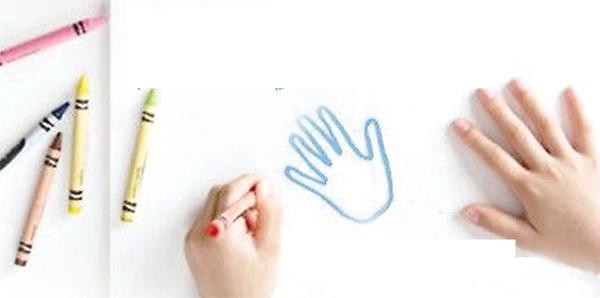国际左撇子日

The two hands are of great importance to us in daily life. But to most people, the right hand seems to be more important, for they usually depend more on the right hand. For example, people usually write and eat with the right hand. In fact, it is a predominantly1 right-handed world. Many products are designed for the right-handed. If you are the special one who likes to use the other hand, life can be quite difficult. Even daily things like opening doors, using computers mouses and cutting with scissors will leave you in an awkward2 position.
两只手在我们的日常生活中扮演着举足轻重的角色,但是对大多数人来说,右手似乎更为重要一些,因为人们一般更依赖于自己的右手。比方说,人们一般都用右手来写字和吃饭。事实上,习惯用右手的人在世界上占主导地位。许多产品都是根据人们喜欢用右手的习惯来设计的。如果你是一个另类,更喜欢用自己的左手,那么你将在生活中遇到很多困难。一些日常事情如开门、使用鼠标和剪刀都会使你处于尴尬的境地。
However, it is said that there is still about ten percent of the worlds population is left-handed. The scientists say that the left-handers are genetic3. It runs in families. So if one has the left-hander gene, one or more of his children may grow up to be left-handed. For thousands of years, the left hand is associated4 with the bad. Children would be spanked5 in school and at home for being different. Their parents will use many ways to force them to write with their “correct” hand. Although left-handed people have many disadvantages and face much discrimination6, they are said to be more creative and talented. Many famous people are left-handed. Michelangelo, Leonardo da Vinci, and Pablo Picasso are all among them.
尽管如此,据说世界上还是有大约10%的人是左撇子。科学家声称左撇子属于基因遗传,可以在家族中遗传下去。因此,如果你带有左撇子基因的话,你的一个或者多个孩子长大后也很有可能是左撇子。几千年来,左手总是与不好的一面联系在一起。左撇子的孩子会因
为他们的“异于常人”而经常被老师和家长打屁股。他们的家长会使用各种办法来迫使他们用“正确”的手来写字。尽管左撇子们在生活上有诸多的不利而且还会受到很多歧视,但是很多人认为左撇子更具创造力、更有才能。许多知名人士都是左撇子,其中包括:米开朗琪罗、列奥纳多·达·芬奇和巴勃罗·毕加索。
To pay tribute7 to the great left-handers in the past and to celebrate their own uniqueness8, some left-handers in America started a group called Left-Handers International in 1975. The group celebrated their first International Left-Handers Day on August 13, 1976. They celebrated it to draw peoples attention to their special life and ask for more rights. In 1992, the Left-handers Club in London also made August 13 as International Left-Handers Day. They set up special websites and organized activities to tell more and ask more for left-handers.
为了对以往的伟大的左撇子们表示敬意,也为了颂扬他们自己的独特,1975年美国的一些左撇子们成立了一个“国际左撇子组织”。1976年8月13日,这个组织第一次庆祝他们的国际左撇子日,旨在引起别人对他们独特生活的关注并维护自己的权利。1992年,伦敦的左撇子俱乐部也将8月13日定为国际左撇子日。他们为此建立了专门的网站并组织了各种各样的活动,来告诉人们更多关于左撇子的知识和故事,并为左撇子们要求更多的权利。
Today, tens of countries in the world celebrate this special day. The left-handers organizations are said to be especially active in European countries. On the day, they organize left-vs-right sports matches, left-handed tea parties where people drink and play games with the left hand only. Also right-handers are encouraged to try out everyday left-handed objects to see just how awkward it can feel using the wrong equipment9!
如今,世界上有数十个国家都在庆祝这个特别的节日。据说在欧洲国家,左撇子组织最为活跃。在8月13日这一天,他们会举办专门的左撇子对右撇子运动比赛及只能用左手端杯喝茶和玩游戏的茶会。而且在这一天,会鼓励右撇子使用日常生活中需要用左手操作的物件,这样他们可以体会一下使用不适当的工具时是多么的尴尬!
These events have made people aware10 of the difficulties left-handers experience in everyday life. They have also led to greater consideration of the needs of the left-handers. People also began to improve the design of some products for the left-handers, although there is still a long way to go.
这些活动使人们意识到左撇子们在日常生活中遇到的诸多不便,也使人们更加关注左撇子们的需求。虽然我们现在需要改进的地方还有许多,但是人们已经开始在产品设计方面为左撇子们做一些改变。
1. predominantly [] adv. 主要地;显著地
2. awkward [] adj. 尴尬的;笨拙的 3. genetic [] adj. 遗传的;基因的
4. associate [] v. 联想 5. spank [] v. 打……的屁股
6. discrimination [] n. 歧视;区别
7. tribute [] n. 礼物;颂词;致敬 8. uniqueness [] n. 独特性;独一无二
9. equipment [] n. 设备,装备 10. aware [] adj. 意识到的

